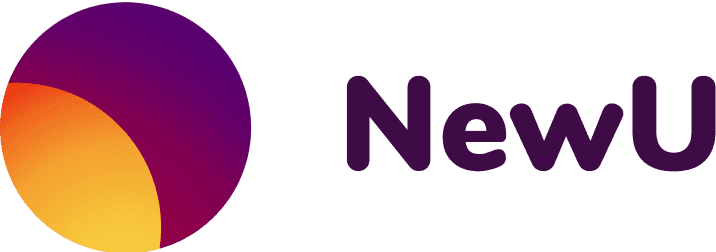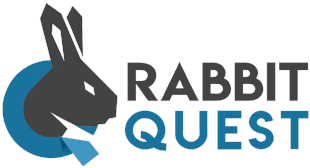Focusing on one theme for a year: isn't that too little? 🔍
Every HR manager knows the feeling: you have grand plans to improve vitality within your organisation, but where do you start? You have countless ideas and the temptation is great to start working on everything at once. But there is also an immediate risk behind this. Too many different vitality initiatives might overwhelm your colleagues. And it can also cause several initiatives to not really come into their own. The result? A well-intentioned vitality plan that loses its momentum halfway through the year due to lack of focus. What if, instead of everything, you chose one theme and focused on it for a whole year? Do you dare to go in depth for long-term, sustainable impact?
Time to read: 5 minutes
The value of focus 🎯
Let's talk about focus. Did you know that it can be a superpower? Instead of spreading your attention over dozens of topics, you can focus on one theme and really dive into it. Focus on one thing for a year? That might sound like a long drive, but it can help you not just touch the surface, but really become an expert. Take sustainability, for example. If you devote your attention to that for a year, you can discover all the ins and outs. You can immerse yourself in new technologies, scrutinise environmental impact and compare different strategies. The result? A wealth of knowledge that not only helps you, but also the organisation or community you are part of. Win-win! This year of focus offers you the chance to think more deeply about the meaning of sustainability and how you can apply it in your daily life or work. How about exploring renewable energy sources, circular economy or even ethical consumption? It is an opportunity to not only gain theoretical knowledge, but also to develop practical skills that you can use to bring about real change.
The risk of one-sidedness ⚖️
But let's also be honest: focusing a year entirely on one theme can also raise questions. Isn't that a bit risky? At a time when diversity of ideas and thoughts is so important, focusing too much on one topic can get in the way of your creativity and innovation. If you are not open to other topics, you risk getting stuck in one way of thinking. And that, of course, is not your intention. Also remember that many themes are interconnected. Sustainability touches not only environmental issues, but also economics, social justice and technology. If you focus only on one thing, you might miss other important connections that help you see the bigger picture. For example, what if you combined your focus on sustainability with issues like social justice? You might discover how sustainability is not only about the environment, but also about equality, inclusiveness and access to resources for all. This would help you develop a broader and more holistic understanding of the challenges and opportunities ahead.
The Importance of Integration 🔗
The good news? Focusing on one theme does not have to mean ignoring everything else. On the contrary! You can learn to make connections. Why not combine your focus on sustainability with topics such as innovation or leadership? By allowing ideas and themes to intersect, you get a much richer perspective. Imagine applying the principles of sustainability in a leadership role. You can not only become an expert on the theme, but also learn how to inspire and motivate others to take the same course. By promoting cross-pollination of ideas and themes, you not only develop your own skills, but also stimulate creativity and innovation within your team or organisation. This kind of integration allows you to be versatile in your approach. Instead of focusing only on one topic, you can discover the synergies that arise when different disciplines meet. This not only gives you more insight, but also new ideas that you can apply in different contexts.
The power of a year ⏳
A year is a considerable time, and that is just right. It gives you enough space not only to gain knowledge, but also to really put that knowledge into practice. This can lead to cool projects, campaigns or initiatives that bring your chosen theme to life. Moreover, a year provides a nice structure for your personal or professional development. It is a chance to set goals and adjust them as you progress and the world around you changes. Think about making a plan, tracking your progress and celebrating your successes. A year gives you the opportunity to develop a vision and fill it in step by step. This ensures that you are not only concerned with the end goal, but also with the journey you are on. And as we all know, it is that journey that helps us grow and learn.
Reflection and evaluation 🪞
At the end of your year of focus, it is important to pause and reflect on what you have learnt. What were the biggest eye-openers? How did that focus change your outlook on things? And might unexpected opportunities have arisen? Reflection is such an important part of the learning process. It helps you see what worked well, what could be better and how you can improve your approach in the future. Take time to evaluate what you have achieved, but also what you would still like to achieve. This is an opportunity to look at the impact you have made and how you can increase it. Also think about how you can share the knowledge and insights you have gained with others. Perhaps you could give a workshop, write a blog or make a presentation. By sharing your experiences, you will inspire others to also dive deeper into their own interests and themes.
Choosing depth over breadth 🌊
In a world where we are often inundated with information and feel the pressure to be involved in everything, focusing on one theme for a year can really be a refreshing change. It gives you the chance to create depth rather than the usual breadth. You can become an expert, make connections and really make an impact. So, isn't a year focusing on one theme too little? Maybe it seems so, but it is above all an opportunity to grow, learn and flourish in a world that is sometimes so shallow. Do you dare to take up the challenge by focusing on one topic?




